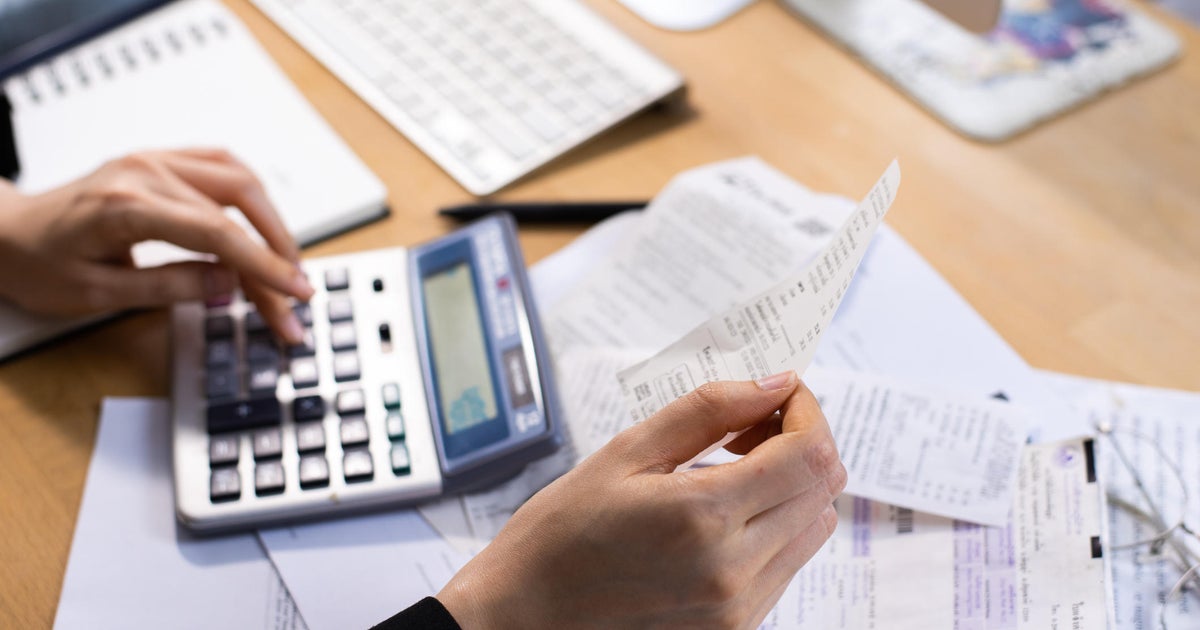Black Friday: What you should know about "buy now, pay later" plans
As consumers gear up for their holiday shopping this year, some may turn to "buy now, pay later" loans to fund gift purchases, especially young and low-income consumers who may not have ready access to traditional credit.
But financial experts are cautioning shoppers to be aware of hidden financial risks with these popular loans. If you've shopped online for clothes or furniture, sneakers or concert tickets, you've likely seen the option at checkout to break the cost into smaller installments over time. Companies like Afterpay, Affirm, Klarna and Paypal all offer the service, with Apple due to enter the market later this year.
But with economic instability rising, so are delinquencies. A September report released by the Consumer Financial Protection Bureau (CFPB) reveals the consumer risks involved in buy now, pay later (BNPL) plans, a market which is mostly unregulated and which lacks many of the same protections provided by other forms of credit loans.
Overspending risk
"One of the biggest risks of using buy now, pay later at the holidays is overspending," said Annie Millerbernd, personal loans expert at NerdWallet, in an email. "A recent NerdWallet study found that consumers who used BNPL in the last year did so an average of six times."
Multiple BNPL loans can be difficult to stay on top of, experts said. Millerbernd recommends using BNPL for a single gift or at one retailer, and then paying that loan off before taking out another one.
And shoppers who use BNPL loans typically spend 10% to 40% more when paying with these loans than they would with a credit card, according to new research from Harvard Business School researchers. Because the loans break a purchase into smaller installments, it can tempt shoppers to buy bigger-ticket items.
Here's what you should know about BNPL plans before you agree to them.
How does buy now, pay later work?
Branded as "interest-free loans," buy now, pay later services require you to download an app, link a bank account or debit or credit card, and sign up to pay in weekly or monthly installments. Some companies, such as Klarna and Afterpay, do soft credit checks, which aren't reported to credit bureaus, before approving borrowers. Most are approved in minutes. Scheduled payments are then automatically deducted from your account or charged to your card.
The services generally don't charge you more than you would have paid up front, meaning there's technically no interest, so long as you make the payments on time.
But if you pay late, you may be subject to a flat fee or a fee calculated as a percentage of the total you owe. These can run as high as $34 plus interest. If you miss multiple payments, you may be shut out from using the service in the future, and the delinquency could hurt your credit score.
Are my purchases protected?
In the U.S., buy now, pay later services are not currently covered by the Truth in Lending Act, which regulates credit cards and other types of loans (those paid back in more than four installments).
That means you could find it more difficult to settle disputes with merchants, return items, or get your money back in cases of fraud. Companies can offer protections, but they don't have to.
Lauren Saunders, associate director at the National Consumer Law Center, advises borrowers to avoid linking a credit card to buy now, pay later apps whenever possible. If you do, you lose the protections you get from using the credit card while also opening yourself to owing interest to the card company.
"Use the credit card directly and get those protections," she said. "Otherwise, it's the worst of both worlds."
What are the other risks?
Because there's no centralized reporting of buy now, pay later purchases, those debts won't necessarily appear on your credit profile with major credit rating agencies.
That means more companies may let you buy more items, even if you can't afford them, because the lenders don't know how many loans you have set up with other companies.
Payments you make on time aren't reported to credit rating agencies, but missed payments are.
"Right now, buy now, pay later can't generally help you build credit, but it can hurt," said Saunders.
Elyse Hicks, consumer policy counsel at Americans for Financial Reform, a progressive nonprofit, said people may not consider seriously enough whether they'll still be able to afford payments down the road.
"Because of inflation, people may think, 'I'm going to have to get what I need and pay for it later in these installments,'" she said. "But are you still going to be able to afford the things you're affording now six months from now?"
Why do retailers offer BNPL loans?
Retailers accept the backend fees of buy now, pay later services because the products increase cart sizes. When shoppers are given the option to pay off purchases in installments, they're more likely to buy more goods in one go.
When Apple recently announced it will be creating its own buy now, pay later service, Josiah Herndon, 23, joked on Twitter about "paying off 6 carts of (things) I can't afford with Apple, Klarna, Afterpay, PayPal Pay in 4, Shop Pay in 4, & Affirm."
Herndon, who works in insurance in Indianapolis, said he started using the services because it was taking a long time for him to be approved for a credit card, since his age meant he didn't have an extensive credit history. He's since used them to pay for high-end clothes, shoes, and other luxury goods. Herndon said he lines the payment schedules up with his paychecks so he doesn't miss installments, and called the option "very convenient."
Who should use buy now, pay later?
If you have the ability to make all payments on time, buy now, pay later loans are a relatively healthy, interest-free form of consumer credit.
"If (the loans) work as promised, and if people can avoid late fees and don't have trouble managing their finances, they have a place," said Saunders, of the National Consumer Law Center.
But if you're looking to build your credit score, and you're able to make payments on time, a credit card is a better choice. The same goes if you want strong legal protections from fraud, and clear, centralized reporting of loans.
If you're uncertain whether you'll be able to make payments on time, consider whether the fees charged by buy now, pay later companies will add up to higher charges than the penalties and interest a credit card company or other lender would charge.
How will economic instability affect buy now, pay later?
As the cost of living increases, some shoppers have started breaking up payments on essentials, rather than just big-ticket items like electronics or designer clothes. A poll by Morning Consult released this week found 15% of buy now, pay later customers are using the service for routine purchases, such as groceries and gas, sounding alarm bells among financial advisers.
Hicks points to the rising number of delinquent payments as a sign that buy now, pay later could already be contributing to unmanageable debt for consumers. A July report from the Fitch ratings agency found delinquencies on the apps increased sharply in the 12 months that ended March 31, to as high as 4.1% for Afterpay, while credit card delinquencies held relatively steady at 1.4%.
"The increasing popularity of this is going to be interesting to see over these different economic waves," Hicks said. "The immediate fallout is what's happening now."
The Associated Press receives support from Charles Schwab Foundation for educational and explanatory reporting to improve financial literacy. The independent foundation is separate from Charles Schwab and Co. Inc.



